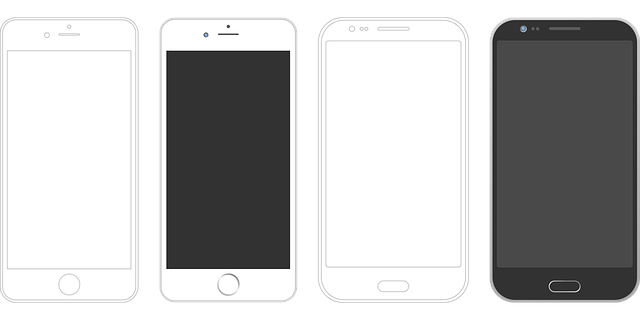In New York City, telemarketing is governed by a complex interplay of state and federal regulations focusing on consumer privacy and consent, with the autodialer law under FCC guidelines restricting automated dialing systems. Law firms operating in this environment must adapt to these requirements, ensuring compliance not only with technical adjustments but also with New York's legal framework for a fair telemarketing environment. While auto dialer technology offers efficiency gains, it is subject to stringent rules like the TCPA and state laws, requiring law firms to navigate consent requirements, do-not-call lists, and consumer privacy to avoid penalties and reputational damage. Strategic approaches include staying updated on regulations, providing staff training, partnering with legal experts, and implementing robust do-not-call management systems.
In New York City, federal regulations play a pivotal role in shaping local telemarketing practices. This article delves into the intricate relationship between federal guidelines, specifically focusing on auto dialer technology, and its legal implications for area law firms. We explore compliance strategies to navigate NYC’s unique telemarketing landscape. By examining case studies, we uncover success stories and valuable lessons learned, offering a comprehensive guide for law firms aiming to operate within these regulatory parameters. Key keywords: autodialer law firm New York.
Understanding Federal Regulations and Their Scope in NYC
In the bustling metropolis of New York City, telemarketing practices are subject to a complex interplay between state and federal regulations. The scope of these rules is vast, encompassing various aspects from call timing restrictions to consumer protection measures. One key legislation that has significant implications for local businesses is the autodialer law, which falls under the Federal Communications Commission (FCC) guidelines. This law restricts the use of automated dialing systems in telemarketing campaigns, ensuring consumers’ privacy and consent.
New York, as a hub for numerous law firms specializing in telecommunications law, has witnessed the adaptation of businesses to these federal regulations. Compliance with the autodialer law firm New York requirements not only involves technical adjustments to dialing software but also meticulous record-keeping and obtaining explicit consumer opt-ins. These measures are designed to prevent nuisance calls and protect residents’ rights, fostering a fairer and more transparent telemarketing environment within the city’s legal framework.
The Role of Auto Dialer Technology in Telemarketing
In modern telemarketing, auto dialer technology plays a pivotal role in New York and across the nation. This innovative system allows businesses to automate the process of placing telephone calls en masse, significantly streamlining their outreach efforts. By leveraging autodialers, law firms in New York can efficiently connect with potential clients, enhancing their marketing strategies. However, this technological advancement also brings about regulatory considerations, particularly concerning consumer protection and privacy.
The Federal Communications Commission (FCC) has established guidelines for the use of auto dialers to ensure fair practices, including restrictions on certain types of calls and requirements for opt-out mechanisms. These regulations are designed to balance the benefits of autodialer technology with the need to protect consumers from unsolicited calls. Law firms operating in New York must stay abreast of these evolving rules to maintain compliance, ensuring their telemarketing activities adhere to both legal standards and ethical marketing practices.
Legal Implications for Local Law Firms Using Auto Dialers
The use of auto dialers in telemarketing has significant legal implications for local law firms operating within the stringent regulatory environment of New York City. While auto dialers can enhance efficiency and reach, they also invite careful consideration under the Telephone Consumer Protection Act (TCPA) and related state laws. Law firms employing these technologies must navigate complex rules governing consent, do-not-call lists, and consumer privacy to avoid costly legal repercussions.
In New York, where consumer protection is paramount, local law firms utilizing auto dialers for outreach must ensure strict compliance with TCPA guidelines. This includes obtaining explicit consent from potential clients and implementing robust opt-out mechanisms. Failure to adhere to these regulations can result in substantial fines, damage to reputation, and legal disputes. Therefore, a thorough understanding of the autodialer law firm New York dynamics is imperative for any legal practice engaging in telemarketing activities within this jurisdiction.
Compliance Strategies for Effective Navigation in NYC's Telemarketing Landscape
Navigating New York City’s telemarketing landscape requires a deep understanding of federal regulations and their local implications, particularly when it comes to the use of autodialers. Compliance with laws like the Telemarketing Sales Rule (TSR) is essential for law firms operating in NYC to avoid penalties and ensure ethical practices. A key strategy involves staying updated on regulatory changes, as the TSR is subject to modifications that can impact autodialer usage. Regular training sessions for staff and partnerships with legal experts specializing in telemarketing law are beneficial.
Additionally, implementing robust do-not-call management systems is crucial. These tools help firms maintain accurate records of consumer preferences, ensuring compliance with national “do-not-call” lists and NYC-specific regulations. By integrating these strategies, law firms can effectively navigate the complex telemarketing environment in New York City, fostering a reputation for responsible and compliant business practices.
Case Studies: Success Stories and Lessons Learned
In the dynamic landscape of telemarketing, navigating federal regulations is a delicate dance for businesses in New York City. Case studies offer valuable insights into how local law firms have successfully adapted to the autodialer laws while learning essential lessons along the way. One notable success story involves a mid-sized legal practice that implemented an innovative approach to compliance. They developed a sophisticated system to ensure every call was manually reviewed and initiated by a live agent, staying within the confines of the autodialer law while maintaining client relationships.
This strategy not only avoided potential penalties but also enhanced their reputation as a responsible and ethical business. Conversely, a lesson emerged from another firm’s experience when they mistakenly relied solely on automated systems. Despite initial cost-cutting benefits, this approach led to regulatory non-compliance, resulting in fines and damaged client trust. These real-world examples underscore the importance of striking a balance between technological advancements and adherence to federal guidelines, particularly in the strict autodialer law firm New York environment.






